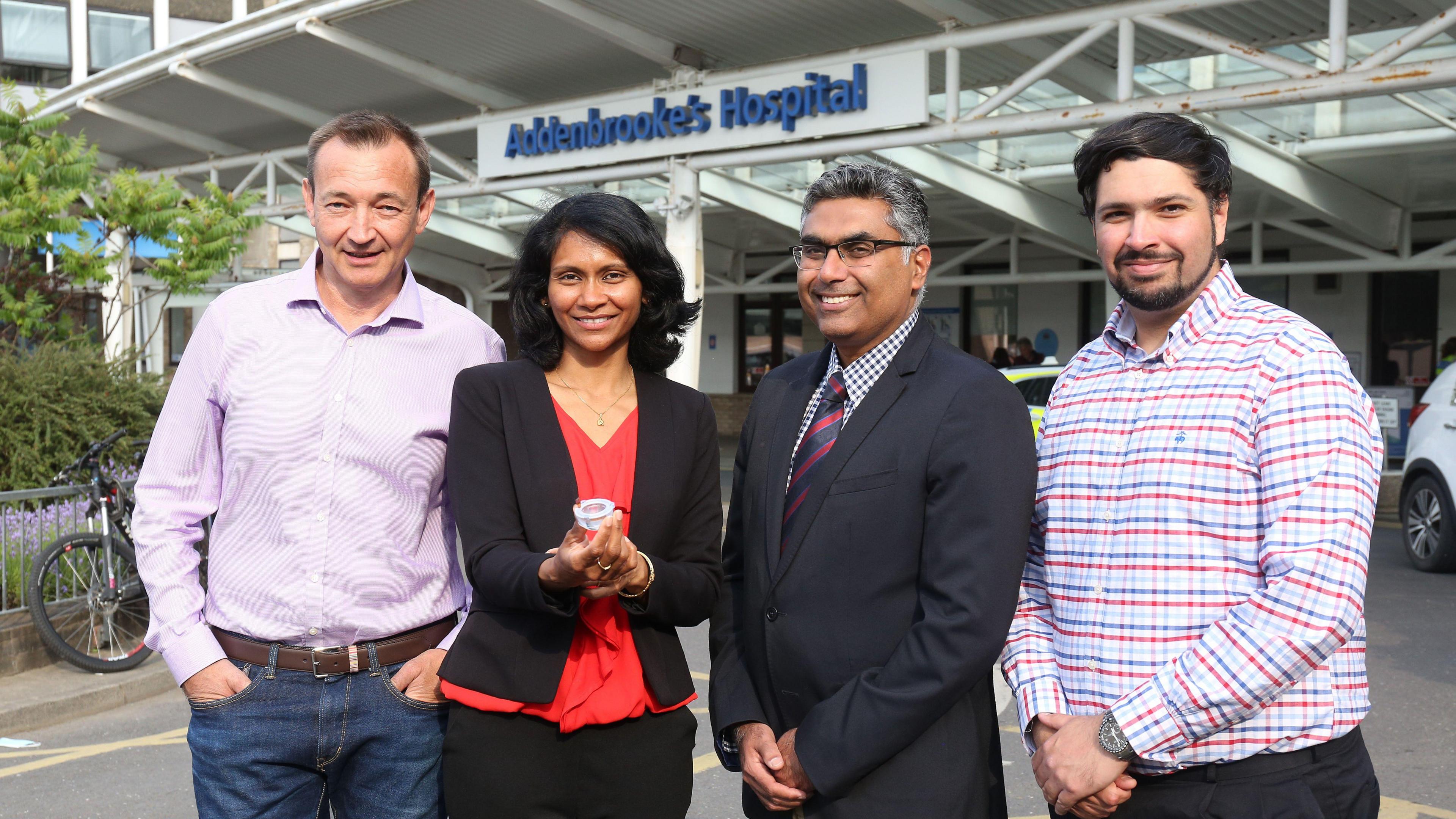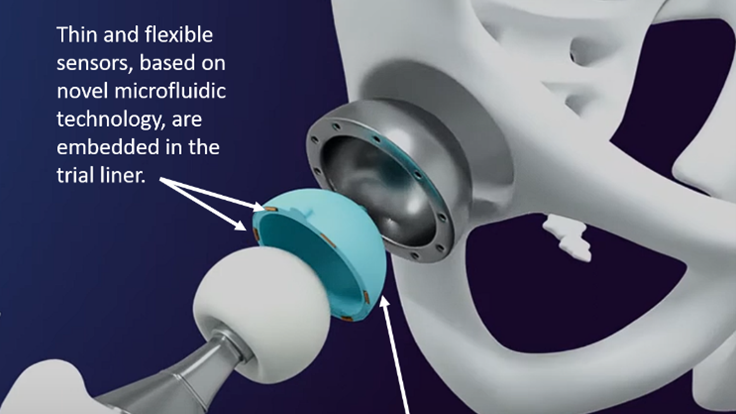New hip replacement tool could transform surgery

Dr Alex Samoshkin, Professor Sohini Kar-Narayan, affiliate associate Professor Vikas Khanduja and Dr Jehangir Cama, are leading on the new technology
- Published
A team of experts hoped a new, first of its kind, technology could help transform the future of hip replacement surgery.
Researchers in Cambridge have won an award to further develop their wireless surgical aid, which has thin sensors to help with positioning and make hip surgery more precise with longer-lasting outcomes.
The National Institute for Health and Care Research (NIHR) awarded £1.4m to advance the work on the project.
Chief investigator, Vikas Khanduja, said the money would fund two years of research to help collect the data needed to push the technology "out of the lab and into the clinic".
Based on 'feel'
Embedded in the smart surgical aid, called the trial liner, are thin and flexible sensors, based on novel microfluidic technology developed at the University of Cambridge.
The sensors measure forces passing through the joint to help a surgeon assess and balance the soft tissues, to aid the accurate positioning of the implant.
Once measurements were made, the surgeon marks the ideal position for the implant, removes the smart trial liner, external and completes the operation.
The team said there were currently no technologies that could deliver such readings during an operation and in real-time, and instead surgeons “balance” the joint based on “feel” and anatomical landmarks.
This was despite over two million total hip replacements being performed annually, with the number constantly rising due to increasing lifespans.
Professor Sohini Kar-Narayan said: "It has been a truly exciting journey so far in designing and developing a novel force sensing technology in my lab with a fantastic and dedicated team, resulting in a prototype device that can potentially measure and help balance forces during total hip replacement surgeries."

Affiliate associate professor Vikas Khanduja
The researchers said patient demographic was also shifting towards the young, so implants needed to withstand higher stresses, and last longer, to avoid spiralling into a circle of revision surgery and higher rates of dissatisfaction.
The team has a prototype of the device, which has been validated in the laboratory and tests, but the NIHR award could be pivotal in further developing the design and making sure it complied with regulations before it could be tested in a living patient.

The National Institute for Health and Care Research has awarded a £1.4m Invention for Innovation (i4i) Product Development Award to advance work on the team’s “smart” joint “trial liner”
Professor Miles Parkes, director of the NIHR Cambridge Biomedical Research Centre said: "It has the potential to deliver a sophisticated technical solution to a major clinical need and represents a complex collaboration."
Dr Terry Parlett added the NIHR award, external would provide a "tremendous boost to help bring this innovative technology from bench to bedside".
Get in touch
Do you have a story suggestion for Cambridgeshire?
Follow Cambridgeshire news on BBC Sounds, Facebook, external, Instagram, external and X, external.